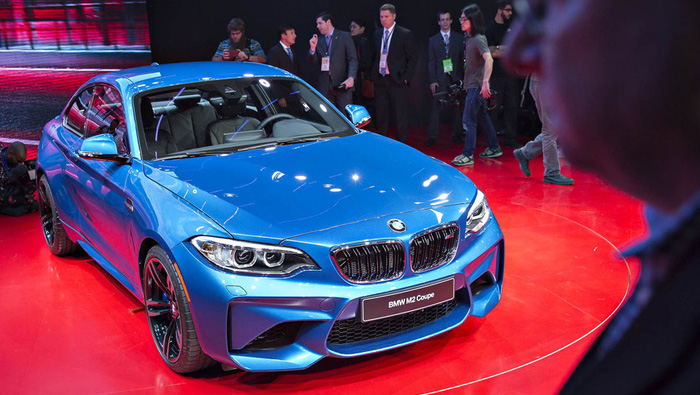
Munich: BMW pledged to remain the world’s leading luxury-car maker after being usurped by Mercedes-Benz in the first half, highlighting the importance of new models such as the revamped BMW 5-Series coming in 2017.
The rivalry between the two carmakers is coming to a head, with Mercedes in a position of strength thanks to a lineup of new sport utility vehicles and redesigned sedans, including this year’s E-Class remake. The Daimler luxury division surpassed BMW as No. 1 in deliveries in the first half. BMW has led in annual premium sales for a decade.
“BMW will struggle to maintain the leading position by sales because they don’t have any obvious blockbusters coming this year,” said Sascha Gommel, a Frankfurt-based analyst with Commerzbank. “That said, carmakers define ‘leading’ in a number of different ways, sometimes as it suits them.”
BMW is at a comparatively weak point in its product cycle. It’s preparing for next year’s remake of the 5-Series sedan, which competes with the Mercedes E-Class that went on sale in March. Another challenge has been United States customers’ shift toward sports utility vehicles (SUVs), which has led to deeper discounts on the sedans at the core of BMW’s lineup. The carmaker’s US sales dropped 9 per cent in the first six months, more than 9,000 vehicles behind Mercedes.
Profitability focus
BMW has said it will focus on profitability as it invests in technology, such as self-driving features, to compete with new rivals including Uber Technologies and Tesla Motors. The company has promised to introduce a car capable of driving itself by 2021, working with partners Intel and Mobileye, and on Tuesday highlighted an 87 per cent first-half increase in the sales of its electric models.
The group, which includes the BMW, Mini and Rolls-Royce brands, is “firmly intent” on remaining the world’s leading luxury-car manufacturer this year, BMW said in a statement.
Second-quarter earnings before interest and tax rose to €2.73 billion ($3.05 billion) from €2.53 billion a year earlier. BMW kept a tight hold on costs to offset a reliance on less-expensive vehicles such as the X1 compact SUV to boost sales. The result comes after Daimler and Volkswagen beat expectations with earnings that excluded one-time costs. BMW’s figures included €472 million in warranty provisions, among them the cost of recalling vehicles with Takata air bags.
BMW’s return on sales from carmaking was 9.5 percent, compared to 8.4 per cent in the same quarter last year. That compares to an operating profit margin of 10 percent for Mercedes and 7.6 per cent for Volkswagen’s Audi. BMW confirmed its forecast of slight increases in deliveries and profit before tax this year, with a profit margin from carmaking between 8 percent and 10 per cent.